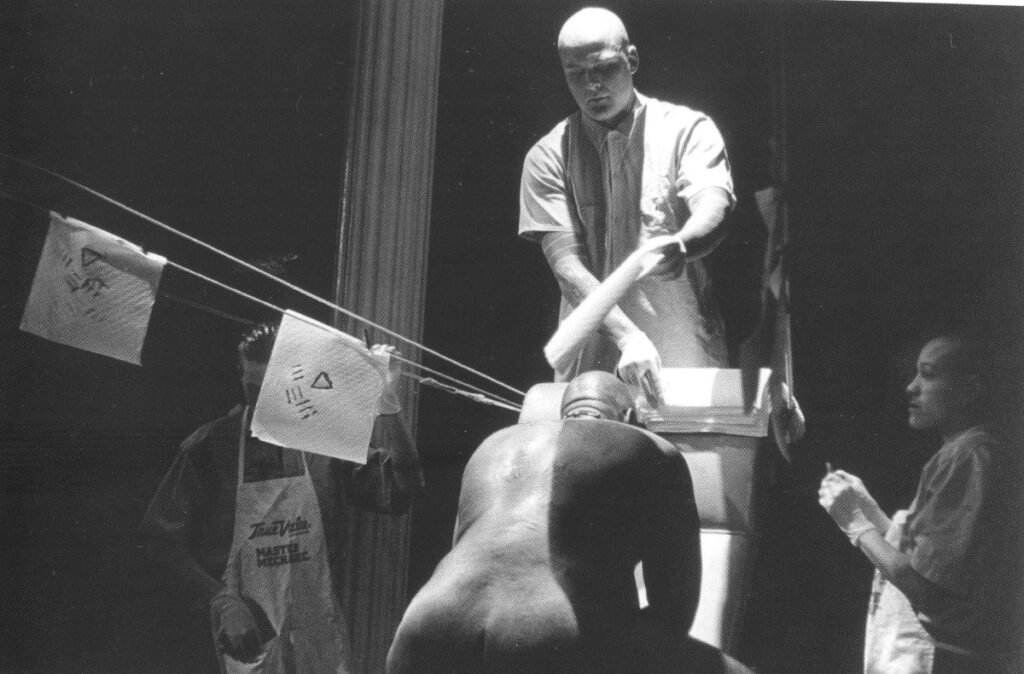One might say that the concept of subjectivity is fashionable. In recent decades, it has been a much-discussed subject for theorists and researchers from various fields of the humanities and social sciences. As a result of such interest, a multitude of works have appeared, which examine the possible meanings of the terms subject, subjectivity and subjectification. Grosso modo, they bring together the analyses of the forms of subjugation of the individual and the desires to strengthen the individual’s capacity for action within the framework of emancipatory projects.
Although authors such as Descartes, Kant and Freud, among others, made fundamental contributions to the elaboration of a philosophy of the subject, it actually was from the 1960s onwards that a theoretical production around this notion intensified. On the one hand, some of the most interesting intellectual disputes that took place within (post)structuralism were related to the frameworks that condition the subject’s capacity for action (Althusser, Foucault). On the other hand, theorisations of new feminist (Lonzi) and anti-colonial (Fanon) subjectivities capable of questioning the centrality of white males as hegemonic subjects of Western modernity were emerging in those same years.

This growing interest in the subject in the field of thought had its artistic correlate in the emergence of body art – art corporel, body works – and performance during the 1960s and 1970s. Many artists (Acconci, Journiac, Piper, Pane, etc.) began to work with and on their own bodies as a way of problematising the construction of the self, originating from new intersubjective experiences and exploring new identity possibilities.

Since the 1980s, the concept of subjectivity has been transformed to incorporate new queer and postcolonial perspectives (Butler, Spivak), while performative practices have mutated at great speed in dialogue with these agendas. The tensions that converge around the subject can be traced, problematised and resized in the unpredictable advancements of performance: the S/M elements and the radical exploration of the body proposed by Ron Athey; the critique of Santiago Sierra’s work; the denunciation of political violence, as put forward by Regina José Galindo.
There is now a widespread awareness that the subject is constructed through very complex processes. Decades of psychoanalysis, deconstruction and queer theory have contributed to contesting the very possibility of an essential, unified, natural, biological subject. From this awareness, it is inevitable to ask ourselves about the possible conditions of subjectivities in the artistic space outlined by certain performative practices. Paradoxically, performance, integrated into the international artistic canon, has today also become the dominant practice and concept in the world of work and economic management (profitability, self-promotion, precariousness, etc.) and the driving force of neoliberal subjectivation, the reason that determines the destiny of homo economicus. And yet, its potential as a field of experimentation of new subjectivities for performers, artists and audiences cannot be hastily disregarded.

Bibliography
Alcázar, J. (2014), Performance. Un arte del yo. Autobiografía, cuerpo e identidad, Siglo XXI, Ciudad de México.
Althusser, L. (2011 [1970)], Ideología y aparatos ideológicos del Estado. Freud y Lacan, Nueva Visión, Buenos Aires.
Butler, J. (1988), «Performative Acts and Gender Constitution: An Essay in Phenomenology and Feminist Theory», Theatre Journal, 40:4.
— (2007 [1990]), El género en disputa. El feminismo y la subversión de la identidad, Paidós, Madrid.
— (2001 [1995]), «Sometimiento, resistencia, resignificación. Entre Freud y Foucault», en Mecanismos psíquicos del poder. Teorías sobre la sujeción, Cátedra, Madrid.
Dardot, P. y Ch. Laval (2013 [2010]), La nueva razón del mundo. Ensayo sobre la sociedad neoliberal, Gedisa, Barcelona.
Foucault, M. (1976), Histoire de la sexualité I. La volonté de savoir, Gallimard, París.
— (2016 [1980]), «Debate sobre Verdad y subjetividad», en El origen de la hermenéutica de sí. Conferencias de Dartmouth, 1980, Siglo XXI, Buenos Aires.
— (1998 [1982]), «Sex, Power, and the Politics of Identity», en Ethics: Subjectivity and Truth, New Press, Nueva York.
Gómez Ramos, A. (2015). Sí mismo como nadie. Para una filosofía de la subjetividad, Los Libros de la Catarata, Madrid.
Jenko, M. (2015), «The Subject», en Glossary of Common Knowledge, L’Internationale, Liubliana.
Jones, A. (1998), Body Art. Performing the Subject, University of Minnesota, Mineápolis.
Kunst, B. (2015), Artist at Work. Proximity of Art and Capitalism, Zero Books, Winchester y Washington.
Mansfield, N. (2000), Subjectivity. Theories of the Self from Freud to Haraway, New York University Press, Nueva York.
Spivak, G. Ch. (2009 [1983]), ¿Pueden hablar los subalternos?, MACBA, Barcelona.
